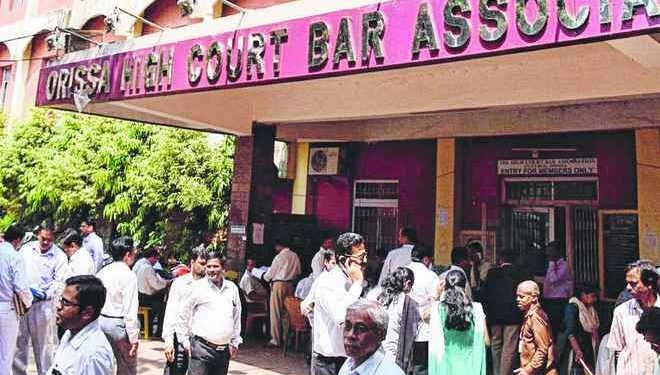New Delhi: Expressing displeasure over agitation by lawyers at some places in the state despite its earlier directive, the Supreme Court (SC) Friday asked the Bar Council of India and Odisha Bar Council to take appropriate action against the lawyers hampering the functioning of judiciary.
A two-judge bench of the apex court comprising Justices Sanjay Kishan Kaul and KM Joseph also directed the Orissa High Court to create concurrent jurisdiction to transfer the cases to the adjacent districts.
During the hearing, counsel appearing for the Orissa High Court, Siba Shankar Mishra, apprised the SC that the strike of lawyers is continuous in some places.
“The lawyers have been abstaining from work for last four-five days of the month,” Mishra stated.
Another counsel argued in the court that the courts are taking up matters of injunction and bail. The apex court, however, dubbed it unacceptable and said that trials must go on in the courts. The bench also wanted to know from the Bar Council of India as to what action they had taken against the agitating lawyers till now.
The counsel appearing for Bar Council of India submitted that it was unable to identify the agitating lawyers and need support from the state bar councils. The apex court asked the bar councils to find out the advocates responsible for this situation. The bench also granted liberty to the Registrar of the Orissa High Court to provide the identity of lawyers who are obstructing the judicial process.
SC concern over judges’ posting
The SC suggests the High Court collegiums to consider advocates practicing in the apex court for recommendation as judges in respective HCs.
The apex court’s suggestion came after Senior Advocate Vikas Singh submitted to the court that the HC Collegium should also consider the names of advocates who are practicing in the SC.
The apex court also expressed dissatisfaction over the response of the Union government regarding the delay in appointment of judges to the HCs.
The bench of Justice Kaul asked the Attorney General KK Venugopal regarding the delay in issuance of notification for the appointment of judges in the cases where the SC Collegium and HC Collegium have recommended the candidate. The bench observed that in cases where the recommendations of the HC Collegium meets with the approval of the SC Collegium and the government, at least their appointments must take place within six months.







































